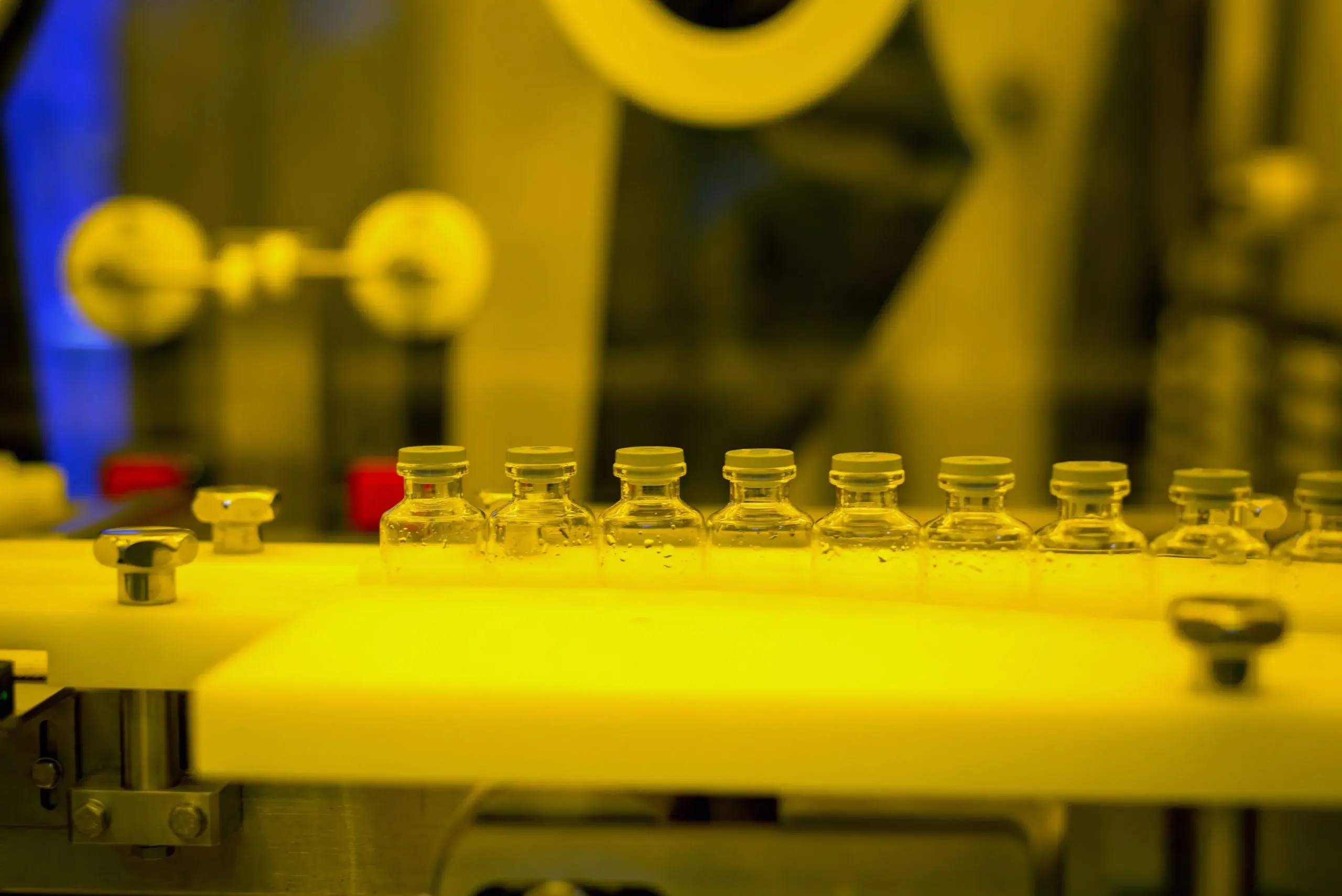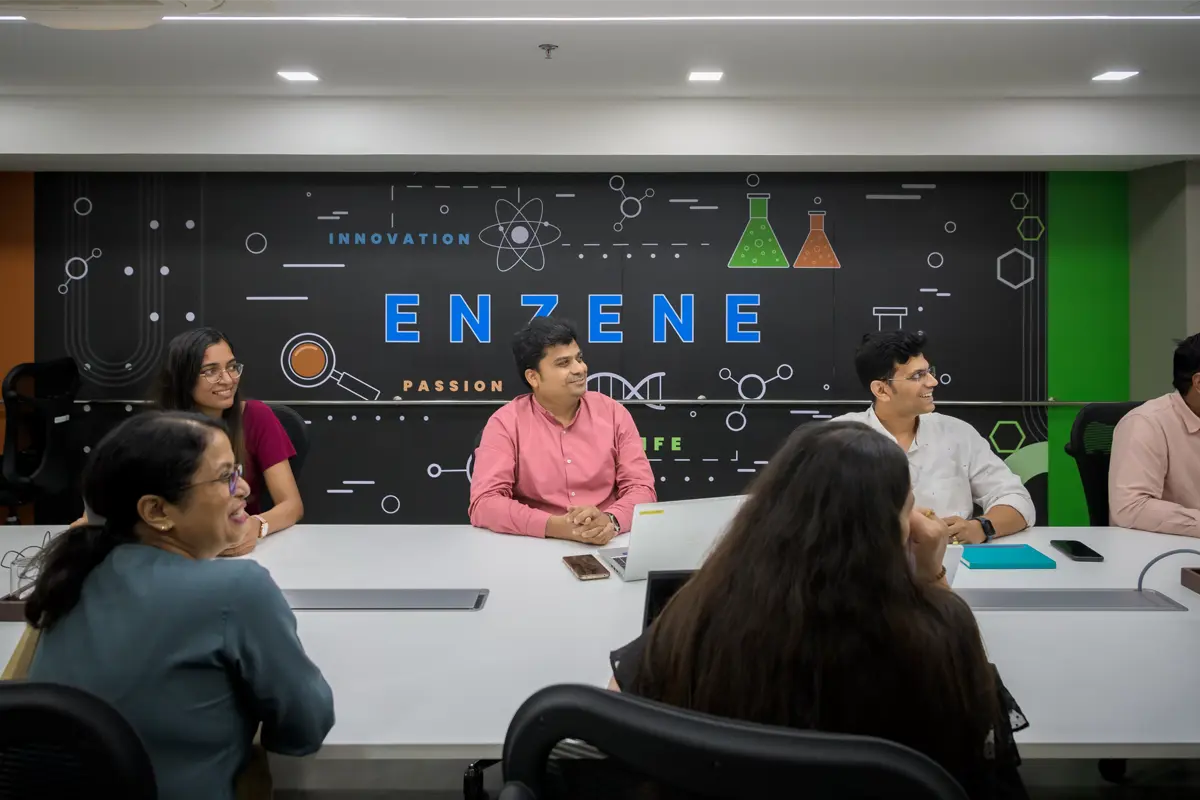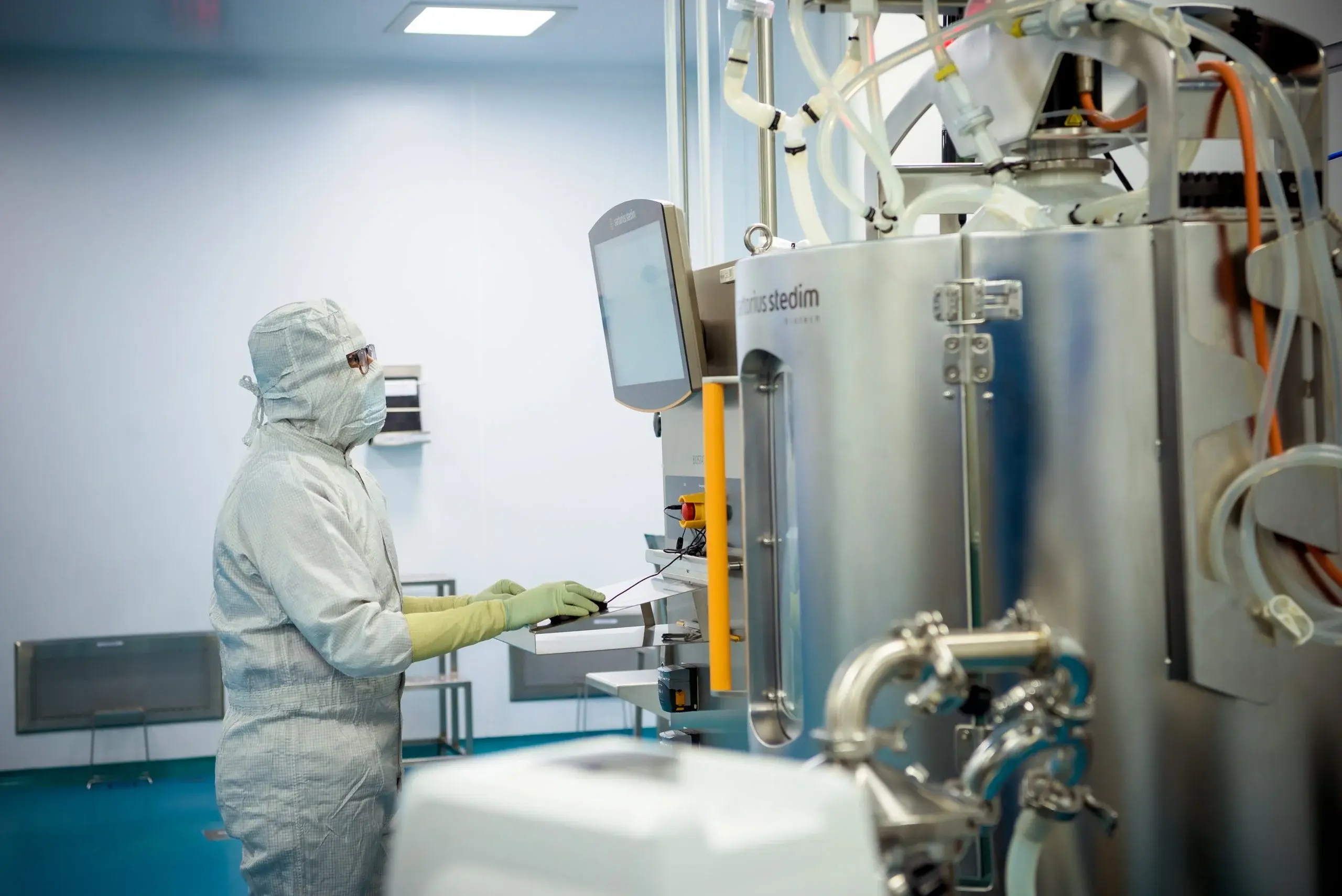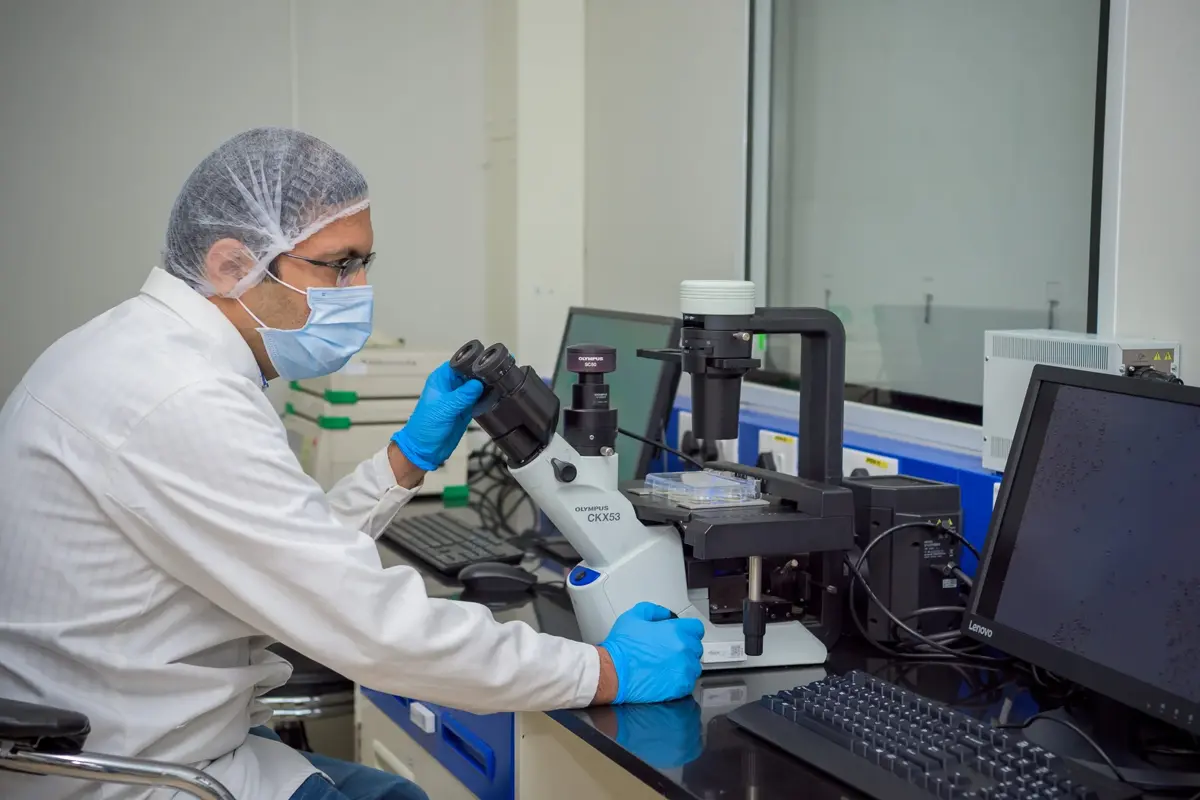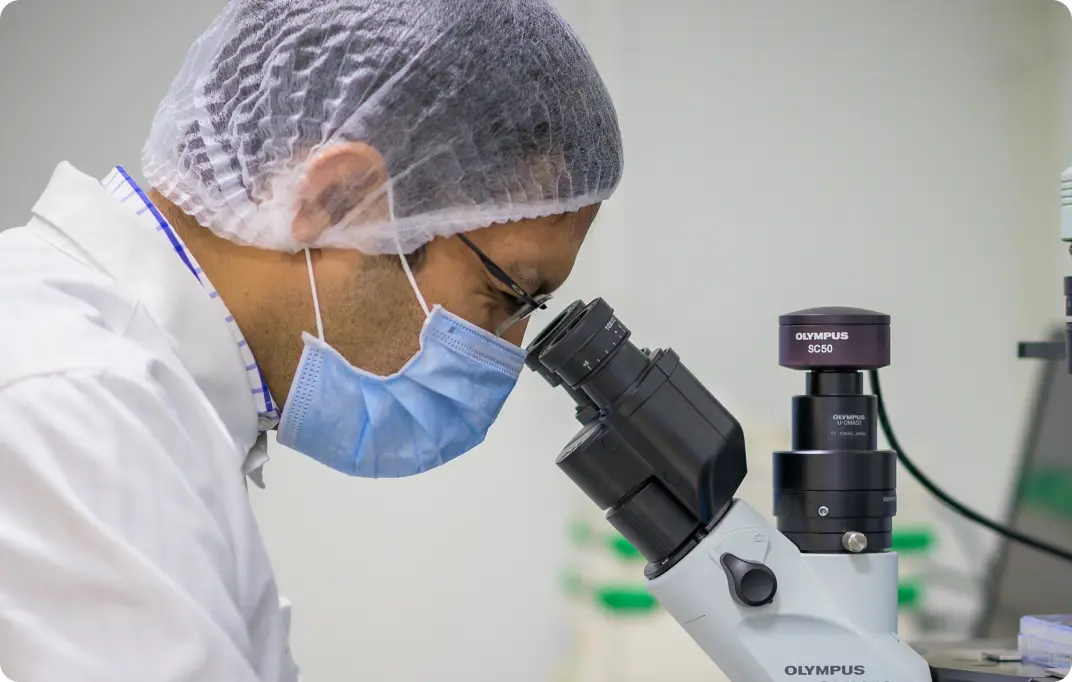Assay development solutions
Unlock the full potential of your drug discovery with our cutting-edge assay development services. From development to screening, we're here to accelerate your path to success.
Empower your research with tailored assay solutions
Assay development is a critical component of drug discovery. Well-developed and characterized assays drive successful discovery campaigns. We offer expertise in developing fit-for-purpose assays across multiple formats and target classes, utilizing advanced instrumentation to deliver customized solutions.
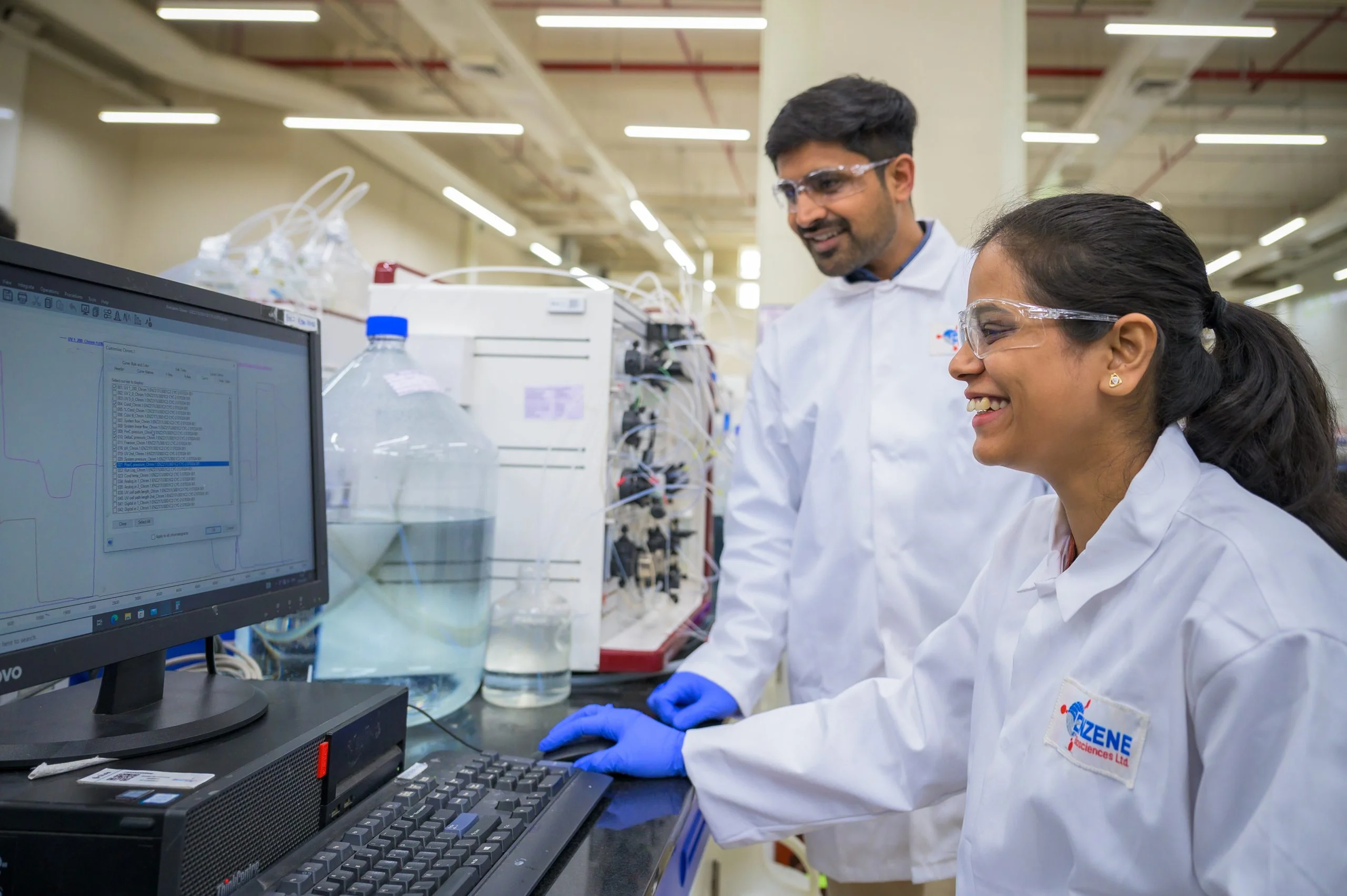
Our approach
Our scientific and client-centric approach ensures timely project delivery, while our cutting-edge technological capabilities offer versatility and ease in decision-making.
We focus on key factors for optimal assay development:
- Assay format and technology selection
- Reagent quality and availability
- Sensitivity, specificity and robustness
- Reproducibility and scalability
- Signal-to-noise ratio optimization
- Appropriate controls to minimize false results
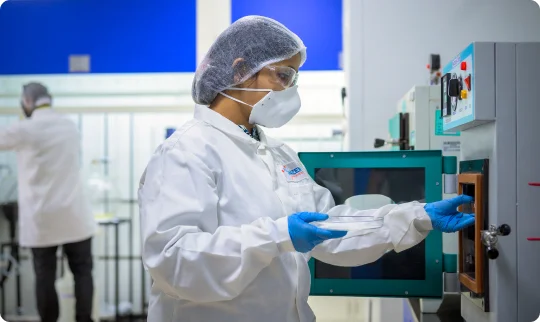
Our expertise in assay development
For cell-based assays, we carefully consider:
- Cell line selection and disease relevance
- Understanding of cell signaling pathways
- Assay stability across multiple passages
Our solutions
With these capabilities in mind, we offer a comprehensive range of solutions designed to support your specific research needs:
1 Immunophenotyping
- Assess surface expression of key marker proteins on immune cells
- Identify and characterize immune cell subtypes and differentiation
- Measure cytokine release to assess cellular function
- Evaluate in vitro immunogenicity of drug substance (DS) and drug product (DP) in assays measuring innate as well as adaptive immunity
2 Biomarker discovery, screening and characterization
- Utilize a multi-omics approach for biomarker identification
- Employ techniques like immunohistochemistry (IHC), fluorescence in situ hybridization (FISH), microarrays, proteomics and next-generation sequencing (NGS)
- Intelligent, fit-for-purpose multi-omics approach using intelligently designed combinations of various platform technologies to yield a potential biomarkers (or molecular indicators) — extensively characterized using orthogonal assays in various models
3 Cytokine and growth factor profilling
- Use Luminex xMAP Technology for multiplexed analysis
- Applications in disease diagnosis, therapeutic development to evaluate efficacy and mode of action (MOA) of novel drugs and research for enhancing our understanding about biological processes and cellular interactions
4 In vitro immunogenicity assays
- Assess immunogenic potential of drug substance/product
- Evaluate innate and adaptive immune responses in human peripheral blood mononuclear cells (PBMCs)
- All assays are accompanied by set of known allergens/immunogens (PAMPs) that activate innate immune arms via specific TLRs/PRRs
5 Immunogenicity, pharmacokinetics and pharmacodynamics (PK/PD)
- Evaluate drug concentration and time course in biological samples (pharmacokinetics) and immunogenicity anti-drug antibodies (ADA) of biologics
- Measure ADA formation and assess the triggering of the patient immune system by biologics
- Measure pharmacodynamic effects based on drug mechanism of action. This could be a soluble biomarker such as serum protein or cytokine, or a cellular marker such as protein/DNA modification (phosphorylation, acetylation, methylation, etc.)
- Assay sensitivity, specificity, precision and accuracy and matrix interference are key aspects considerations
- PK and immunogenicity data together provide a comprehensive understanding of drug behavior in vivo
6 Autoantibody detection
- Screen for autoantibodies related to autoimmune diseases
- Detect common autoantibodies like anti-nuclear antibodies (ANA), anti-dsDNA, anti-SSA/Ro, antibodies against nuclear proteins, certain enzymes and ribosomal proteins
7 Genomic and transcriptomic assays
- Perform gene expression profiling
- Determine cell type and tissue-specific gene expression patterns
- Conduct genetic knockdown/knockout screening
8 Effector function assays
- Design assays based on drug-target mechanism of action
- Offer effector assays (ADCC, ADCP, CDC, Fc receptor binding)
- Provide screening assays (binding, functional, phenotypic, cytotoxicity)
- Orthogonal assays for additional characterization
9 Custom assay development
- Design assays aligned with specific research/client needs
- Develop cell-free and cell-based phenotypic assays
- Create surrogate assays mimicking cell signaling
- Generate custom reporter gene cell lines
10 Data analysis and interpretation
- Strong internal due diligence ensures concordance with assay criteria and QC parameters
- Provide data visualization and statistical evaluation
- Interpret results to facilitate decision-making


